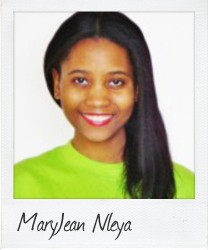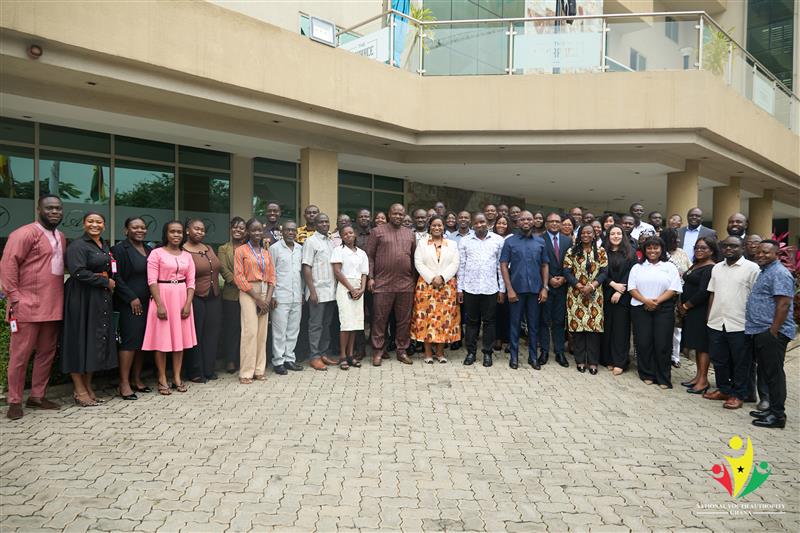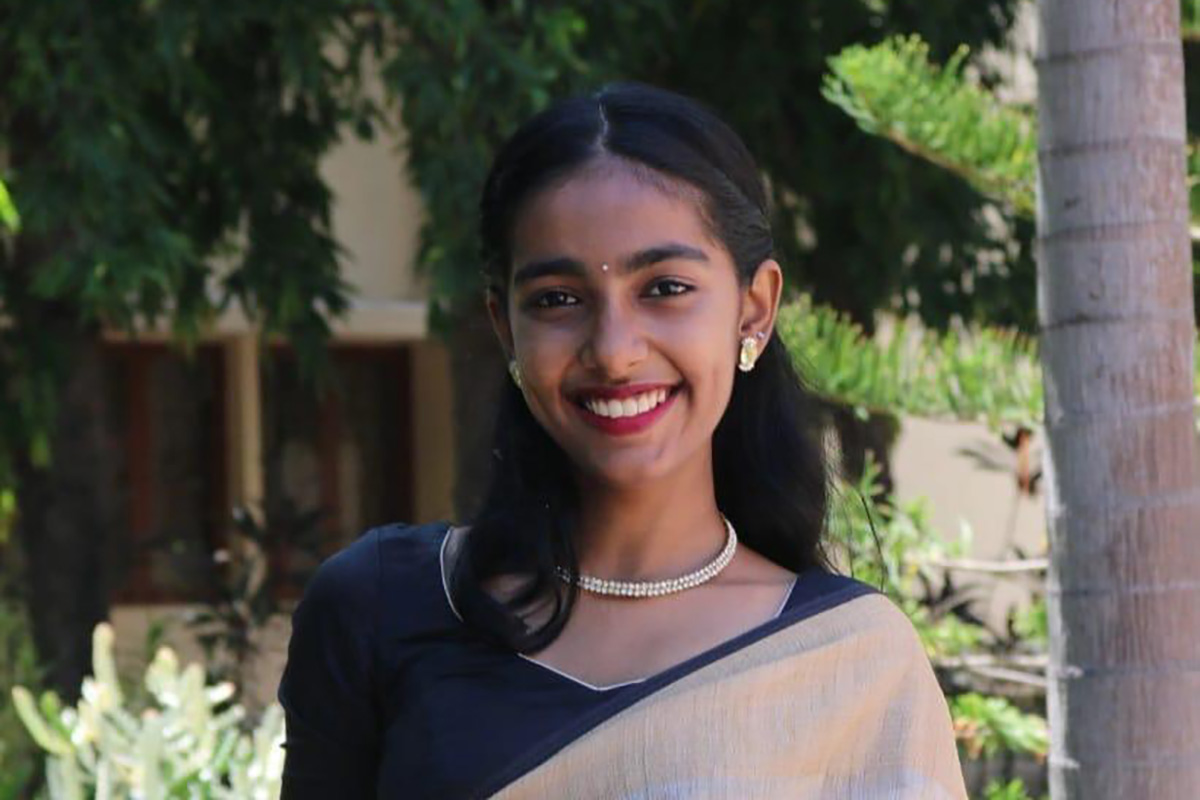Our Correspondent at the Commonwealth Youth Forum
May 18MaryJean Nleya, from Botswana, reviews the 11th Commonwealth Youth Forum held in London, where the 53 Commonwealth nations were represented by young leaders and their heads of government.
The anticipated Commonwealth Heads of Government Meeting 2018 (CHOGM) kicked off in London and Windsor as 53 national flags of all Commonwealth nations-states lined and flew in Westminster’s Parliament Square. The heads of the various Commonwealth states (and their envoys) visited the UK to attend the biennial summit. The Commonwealth Youth Forum, People’s Forum, Women’s Forum and Business Forum took place immediately before the ultimate CHOGM 2018.
The Commonwealth Youth Forum (CYF) attracted young leaders from across the Commonwealth and the Queen Elizabeth II Centre was pulsating with energy as youth leaders walked the hallways of the conference venue discussing issues from development to climate change, democracy to migration issues, from refugees to security and more.
Day 1
The CYF commenced on 16 April 2018 with welcome remarks with the theme “Powering our Common Future”. The day’s speakers included Prince Harry, who was appointed the Commonwealth Youth Ambassador. Prince Harry reminded those in attendance: “Young people are the answers for the challenges we face.” He further highlighted that it is important to tackle big problems from the root and it is young people who understand that. Prince Harry also announced the new Queen Elizabeth Commonwealth Scholarships programme which will support 150 new scholars in low and middle-income Commonwealth countries.
Secretary-General of the Commonwealth Secretariat Patricia Scotland was also in attendance. Scotland underscored: “Tackling the complex and interconnected issues in our globalised world and achieving the SDGs hinges on young leaders and the millions they represent.” She concluded her remarks by saying: “Young people are indeed powering our common future.”
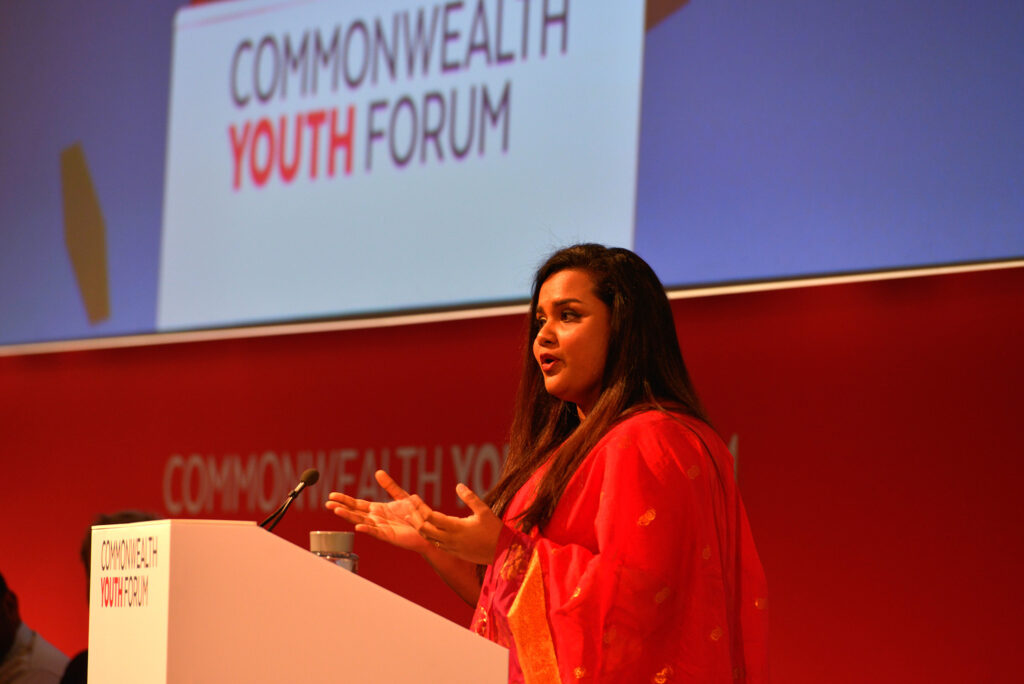
The United Nations Youth Envoy Jayathma Wickramanayake gave impassioned remarks that covered wide-ranging critical topics that went beyond encouraging the youth in the plenary session. Wickramanayake spoke on poverty, climate change inequalities within Commonwealth nations and across the Commonwealth. According to Wickramanayake, young people are not just the young generation; “young people”, she said, “are the SDG generation.” She reminded the attendees that young leaders’ purpose at CHOGM was to have “youth voices brought to the heads of government meeting this week” and that boldness and fresh perspectives are important to critically engage with global issues and debates. Wickramanayake also addressed the colonial history upon which the Commonwealth is founded.
The first day of the CYF also had some who challenged the contemporary relevance and role of the Commonwealth within a contemporary context, in a post-colonial era. Each of the 53 Commonwealth nations have their own priorities and interests, even while marching towards collective action “towards a common future”. The host-nation, UK, hosted the 2018 CHOGM hot on the heels of negotiating Brexit. To this end, in a post-Brexit UK, Commonwealth nations could be the alternative for the UK in terms of boosting trade-relations – and at this point observers view this as arguably one of the UK’s main priorities at CHOGM 2018. While other countries present at the summit also came with their own respective immediate and pressing concerns.
The Commonwealth biennial summit is about the individual nations and also paradoxically about the collective. For example on the other hand and quite apart from Brexit, a number of representatives from Caribbean nations are reported, on 15 April, to have requested for a meeting with the UK’s Prime Minister Theresa May to discuss the Windrush-generation immigration matter. A meeting was later convened between Prime Minister May and Caribbean leaders at 10 Downing Street on 17 April where it was reported that the UK Prime Minister apologised to Caribbean leaders over the Windrush deportation storm.
Day 2
Day two of CHOGM reached a crescendo at the Queen Elizabeth II Centre on 17 April when the day’s activities were opened with a musical performance encompassing the diversity of the Commonwealth. Following the instrumental rendition was a joint-forum plenary with the following speakers: Prime Minister of the UK Theresa May, Bill Gates, Secretary-General of the Commonwealth Patricia Scotland, the Prime Minister of Jamaica Andrew Holness and the panel was moderated by the BBC’s Zeinab Badawi.
The topics that were covered by the esteemed speakers varied from tackling communicable diseases, to security challenges, migration, ways to deliver a fairer, sustainable and prosperous Commonwealth and more.
The joint-forum plenary session during CHOGM2018 saw the Prime Minister of Jamaica directly address the Windrush deportation matter. He introduced the subject of migration when he said: “Migration of persons affects smaller countries the most.” He later went on to state that people who contributed to the UK and who are later unable to claim it as their own need to be treated fairly. Holness provided a developing country-perspective to that morning’s dialogue.
Secretary-General Patricia Scotland in her own remarks asserted: “The Commonwealth is not joined together by treaty, but by will.” Whereas Prime Minister Theresa May’s remarks touched on matters concerning the grievous use of chemical weapons in Syria, free and fair trade among Commonwealth nations, cyber security, and youth unemployment. She said: “We cannot allow the use of chemical weapons to become normalised – either within Syria, or on the streets of the UK or elsewhere.” May pledged to improve education and also tackle malaria across the Commonwealth. Prime Minister May further highlighted: “If the Commonwealth is to speak with one voice, the world has no choice but to listen [and as a result] the Commonwealth can inspire the world and change the world.
Bill Gates spoke on themes of youth empowerment, shared prosperity, and sharing best practices to tackle global challenges such as preventing communicable diseases. He said: “The best practices of the nations gathered if adopted worldwide would revolutionise the entire world and help us solve many of our top problems.”
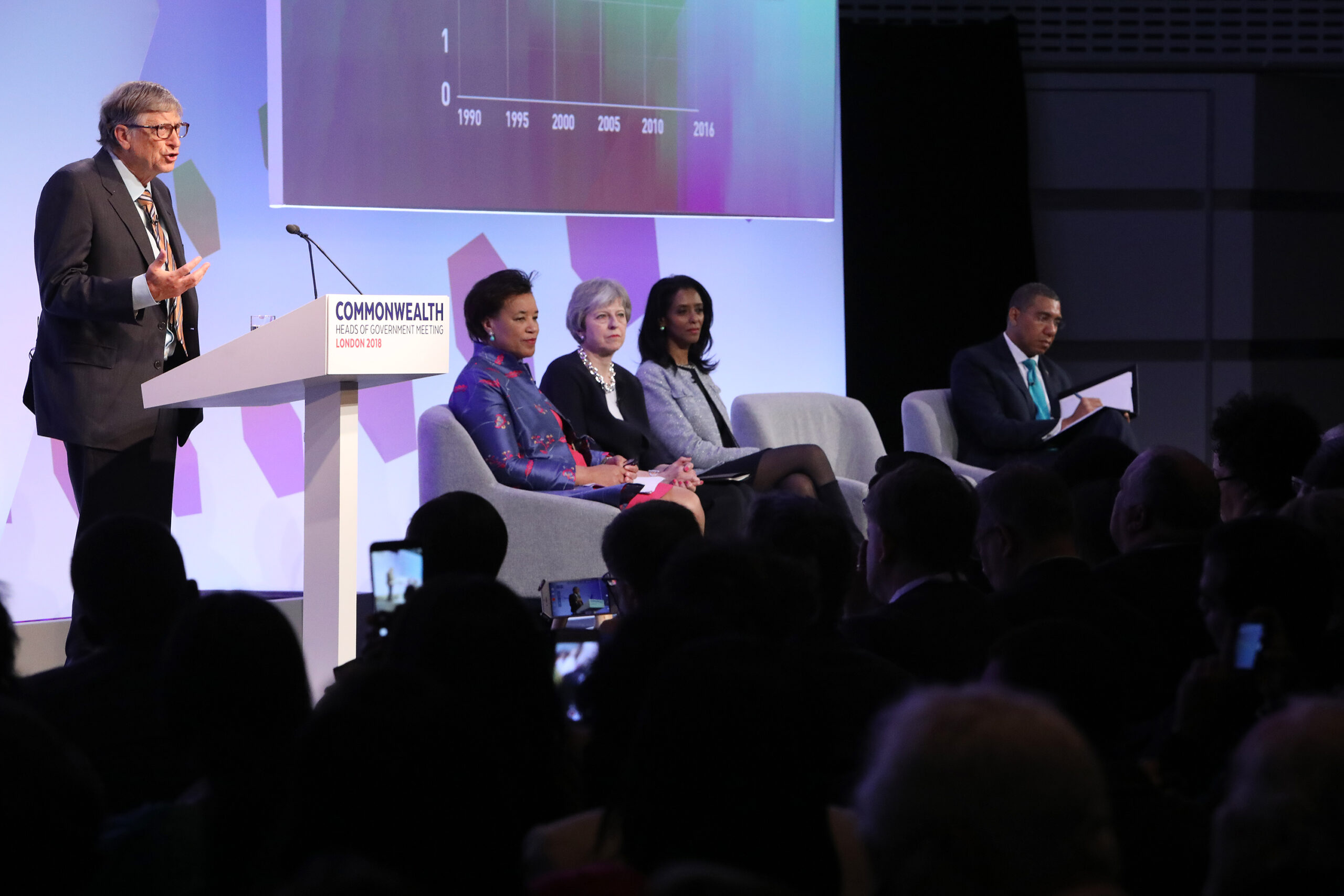
In a subsequent Youth Forum plenary session, former Prime Minister of New Zealand Helen Clark spoke on sustainability and climate change. Clark highlighted how in different ages, there are significant challenges with which the youth (of that generation) should engage and tackle. She said that in this generation (in the 21st century), young people should engage with the sustainability challenge. She emphasised that young people should support leaders who are taking active strides to “walk the talk” on climate change and who are implementing actual policies to achieve such aims.
Day 3 and CHOGM Wrap Up
CHOGM wrapped up on 20 April and the constituent Forums – the Commonwealth Business Forum, People’s Forum, Women’s Forum, and the vibrant Youth Forum – concluded on 18 April . Ahead of the gatherings by leaders at CHOGM, each of the Forums had mandates over the initial three days to discuss, debate and to ultimately provide recommendations to the heads of government.
The Commonwealth Youth Forum concluded on 18 April when it culminated in the announcement of a new Commonwealth Youth Council – with a tenure of two years. On the final day of the Youth Forum, youth delegates convened for the sitting of the General Assembly to vote for various motions.
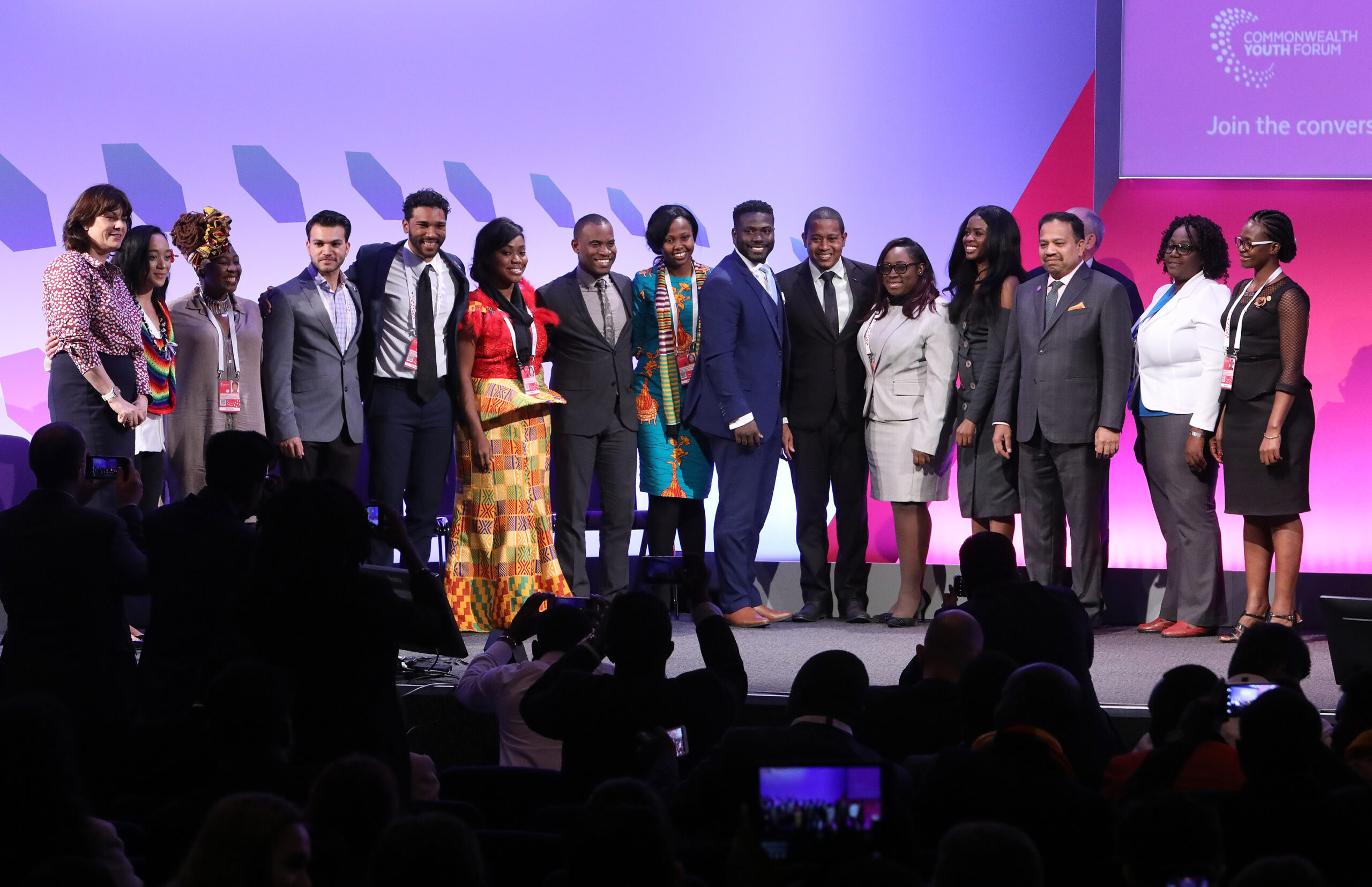
The closing session of the Youth Forum saw the president of the Senate in Malaysia, H.E. Senator Datuk S.A. Vigneswaran conclude the session. He urged youth delegates to “translate ideas into actions”. Earlier in the concluding ceremony, June Sarpong, Ambassador for the “Be Cool, Be Nice” Campaign, said to the youth delegates: “Together your voices have created powerful plans on the manner to work towards a common future.” The Commonwealth Youth Forum during the week of CHOGM concluded with a task for youth leaders to go and be a positive force in society.
Adjoining the CHOGM and the respective Forums was a music festival that took place with the aim of “influencing positive change on a global scale”. The festival, known as the Global Citizens Live took place in London on 17 April. The festival brought together musicians such as Emeli Sandé, poets, a DJ, world leaders and global citizens, some of whom included the youth delegates. During the music event, former UN Secretary-General and chair of The Elders, Kofi Annan, advised the crowd: “You are never too young to lead and you are never too old to listen.”
The heads of government meeting was officially opened by Her Majesty, the Queen at Buckingham Palace on 19 April. During the Queen’s opening remarks she said the Commonwealth is “one of the world’s great convening powers – a global association of volunteers who believe in the tangible benefits that flow from exchanging ideas and experiences and respecting each other’s point of view.” The Queen also expressed her “sincere wish” for Prince Charles to be the future head of the Commonwealth one day.
Different world issues that affect Commonwealth states were tabled into the agenda for debate and discussion by the 53 heads of Commonwealth governments, including: climate change and environmental sustainability – such as championing the Blue Charter, cyber security, immigration, trade, youth empowerment and more. The gathering of heads of government concluded on 20 April.
The week-long activities, leading to CHOGM 2018 were centred around promoting democracy, celebrating diversity, boosting trade and investment, promoting gender equality, creating shared prosperity, protecting human rights, amplifying the voice of small states within the Commonwealth. After dialogues at the Forums and the heads of government meeting, all 53 member countries of the Commonwealth agreed on the CHOGM 2018 communiqué.
Achieving the aims of a communiqué such as this requires the staunch commitment across the spectrum: from government leaders, civil society, business leaders and of course young leaders. It is after CHOGM that the real work begins.
The next CHOGM is scheduled for 2020 and it is expected to take place in Rwanda when a reappraisal of CHOGM 2O18 will be made.
It was recognised by the Prime Minister of Jamaica Andrew Holness, during his remarks at the joint-forum plenary on 17 April 2018, that it cannot be ignored that the Commonwealth brings together nations with divergent perspectives and interests. He also pointed out that developing Commonwealth countries, including small island states, require a fair environment within which to operate; and simultaneously leaders of developing nations out to play their own role. Yet, despite the divergence and varying interests, that difference and the shared history can be a force for good if harnessed.
CHOGM 2018 was a reminder that the ultimate purpose of the Commonwealth is for the common wealth of its nations and people.
